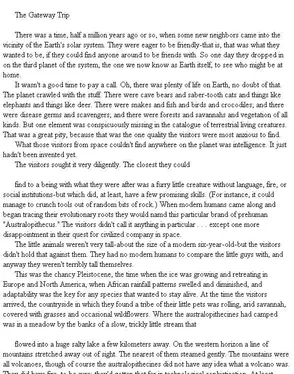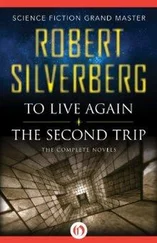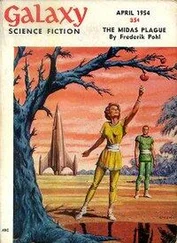Pohl, Frederik - The Gateway Trip
Здесь есть возможность читать онлайн «Pohl, Frederik - The Gateway Trip» весь текст электронной книги совершенно бесплатно (целиком полную версию без сокращений). В некоторых случаях можно слушать аудио, скачать через торрент в формате fb2 и присутствует краткое содержание. Жанр: Старинная литература, на английском языке. Описание произведения, (предисловие) а так же отзывы посетителей доступны на портале библиотеки ЛибКат.
- Название:The Gateway Trip
- Автор:
- Жанр:
- Год:неизвестен
- ISBN:нет данных
- Рейтинг книги:4 / 5. Голосов: 1
-
Избранное:Добавить в избранное
- Отзывы:
-
Ваша оценка:
- 80
- 1
- 2
- 3
- 4
- 5
The Gateway Trip: краткое содержание, описание и аннотация
Предлагаем к чтению аннотацию, описание, краткое содержание или предисловие (зависит от того, что написал сам автор книги «The Gateway Trip»). Если вы не нашли необходимую информацию о книге — напишите в комментариях, мы постараемся отыскать её.
The Gateway Trip — читать онлайн бесплатно полную книгу (весь текст) целиком
Ниже представлен текст книги, разбитый по страницам. Система сохранения места последней прочитанной страницы, позволяет с удобством читать онлайн бесплатно книгу «The Gateway Trip», без необходимости каждый раз заново искать на чём Вы остановились. Поставьте закладку, и сможете в любой момент перейти на страницу, на которой закончили чтение.
Интервал:
Закладка:
As our teachers keep telling us, the longest journey begins with a single step. That first step for the Gateway asteroid-the first voyage of exploration any human being ever took in a Heechee spaceship-wasn't planned in advance. It wasn't even authorized. And it certainly wasn't prudent.
The name of the man who took that first trip into the unknown was Lieutenant Senior Grade Ernest T. Kaplan. He was a marine officer from the U.S. Space Navy cruiser Roanoke. Kaplan wasn't a scientist. He was so far from being a scientist that he had been given strict orders not to touch anything, but anything, on the Gateway asteroid. The only reason he was on the asteroid in the first place was that he had been ordered there as a guard, to keep anyone else from touching anything while the scientists who came hurrying up from Earth tried to figure out just what the devil they had here.
But Kaplan had a mind full of itchy curiosity, and what's more, he had access to the parked ships. And one day, for lack of anything better to do, he sat down in the one ship that happened to have been equipped with food lockers and air and water tanks, just in
case anyone got the locks closed and was trapped inside. Kaplan thought for a while about old Sylvester Macklin. Just for the fun of it, he practiced opening and closing the locks a few times. Then he played with the knurled wheels for a while, watching the changing colors.
Then he squeezed the funny-looking little thing at the base.
That was what later, more expert pilots would call "the launch teat," and as soon as he squeezed it Lieutenant Senior Grade Kaplan became the second human being to fly a Heechee ship. He was gone.
Ninety-seven days later he was back at the Gateway asteroid.
It was a miracle that he'd managed to return; it was even a bigger miracle that he was still alive. The supplies in the ship had been meant to last for a few days, not for months. For drinking water he had been reduced to catching the condensation from his own sweat and emanations as it beaded the lander port. For the last five weeks he hadn't eaten anything at all. He was scrawny and filthy and half out of his mind
But he had been there. His ship had orbited a planet far out from a small, reddish star; a planet that had so little light that it seemed only grayish, with swirling yellow clouds-a little the way Jupiter or Saturn or Uranus might have appeared, if their orbits had been as far from the Sun as the twilit Pluto.
The first reaction of the United States government was to courtmartial him. He certainly deserved it. He even expected it.
But before the court was convened the news services carried the word that the Brazilian parliament, carried away at the thought of sharing in the exploration of the galaxy, had voted Kaplan a million-dollar cash bonus. Then the Soviets not only made him an honorary citizen but invited him to Moscow to receive the Order of Lenin. The dam had burst. Every talk show on every television network in the world was begging him to be a guest.
You couldn't courtmartial a hero.
So the American president jumped Lieutenant Kaplan to full colonel and then to general, in the same orders that grounded Colonel (or General) Kaplan forever. Then the president called all the spacefaring nations together to decide just how to handle this situation.
The result was the Gateway Corporation.
Colonel Kaplan, like everyone before him, had failed to make one vital discovery, and that was that each one of the Heechee ships was actually two ships. Part One was the interstellar vessel that traveled faster than light to a programmed destination. Part Two was the smaller, simpler landing craft that nestled into the base of the ship itself.
The interstellar ships themselves, with their unreproducible faster-than-light drives, were totally beyond the understanding of human scientists. It was a long time before any Earth person knew how they worked. Those who tried too hard to find out generally died because their drive engines blew up. The landers were much simpler. Basically, they were ordinary rockets. True, the guidance system was Heechee, but fortunately for the Gateway prospectors the controls turned out to be even simpler to operate than the faster-than-light vessels. The prospectors could use the lander successfully, even if they didn't know exactly how it worked, just as any average seventeen-year-old can learn to drive a car without any comprehension of the geometry of steering linkages or gear chains.
So when any Gateway prospector came out of FTL drive and found himself in the vicinity of an interesting-looking planet, he could use the lander for the purpose for which it was designed: to go down to the surface of the planet and see what it had to offer.
That was what Gateway was all about.
The planets were where you had to go, because they were the most likely places to look for the kind of precious thing the prospector could bring back and turn in to make his fortune-and, naturally, to add to the Corporation's.
It was easy to describe the kind of planets they were looking for. They were looking for another Earth. Or something enough like Earth, anyway, to support some form of organic life, because inorganic processes hardly ever produced anything worth the carrying space it took to bring it home.
The most disappointing planets were the closest. When the Heechee came to Earth's solar system they gave it a good looking-over, and some of the ships on the Gateway asteroid reflected that. They still had stored navigation codes for places so near that human be-
ings could have visited them on their own-if they wanted to. Some of them in fact had already been reached by the crude human rockets-places like Venus, the Moon, Mars's south polar ice cap. Some were hardly worth the trouble, like Saturn's moon, Dione.
The prospectors were after bigger game than that. They wanted planets no man or woman had ever seen. They found a bewildering array of them.
The planets they reached in the Magic Mystery Bus Rides came in all shapes and sizes. There were two basic types. There were the orbiting rocks (like Earth; solid and landable-on), and then there were the would-be stars (like Jupiter; the gas giants, that were just a bit too small to start nuclear fusion in their cores and turn themselves into suns). No Gateway prospector ever landed on a gas giant, of course. They had nothing solid enough to land on. (That was a pity, for a few of them were interesting anyway .. . but that's another story.)
It was the orbiting rocks that were prospected as vigorously as a few thousand scared, hurried human beings could explore them. There were plenty of the solid planets. Most of them had no apparent life at all, unfortunately. They were too far from their sun, so they were eternally frozen, or they were too close, so they were as scorched as the planet Mercury. Many of them had too little atmosphere (or none at all), like Mars (or the Moon). Some of them had satellites of their own, like the Earth's Moon. Some of the target objects were satellites, but big ones, big enough to retain atmospheres and to land on.
There were something over two hundred billion stars in our own galaxy, and a hellish lot of them possessed planets of one kind or another. Even the Heechee ships weren't programmed to set a course for all the possible planets to explore. There were hardly course settings for one planet in a hundred thousand, in fact. Still, that left plenty for the Gateway prospectors to visit-many more of them than a few thousand men and women could reach in the course of a few dozen years.
So the first discovery the Gateway prospectors made was that there were plenty of planets to choose from. Human astronomers were glad to know that, because they'd always wondered, and the Corporation didn't even have to pay a discovery bonus to find it out: all they had to do was add up the findings of the returning explorers. It developed that binary stars didn't ordinarily have planets. Solitary stars, on the other hand, generally did. Astronomers thought the reason for that probably had something to do with conserving rotational velocity. When two stars condensed together out of a single gas cloud they seemed to take care of each other's excess rotational energy. Bachelor stars apparently had to dissipate it on smaller satellites.
Читать дальшеИнтервал:
Закладка:
Похожие книги на «The Gateway Trip»
Представляем Вашему вниманию похожие книги на «The Gateway Trip» списком для выбора. Мы отобрали схожую по названию и смыслу литературу в надежде предоставить читателям больше вариантов отыскать новые, интересные, ещё непрочитанные произведения.
Обсуждение, отзывы о книге «The Gateway Trip» и просто собственные мнения читателей. Оставьте ваши комментарии, напишите, что Вы думаете о произведении, его смысле или главных героях. Укажите что конкретно понравилось, а что нет, и почему Вы так считаете.












